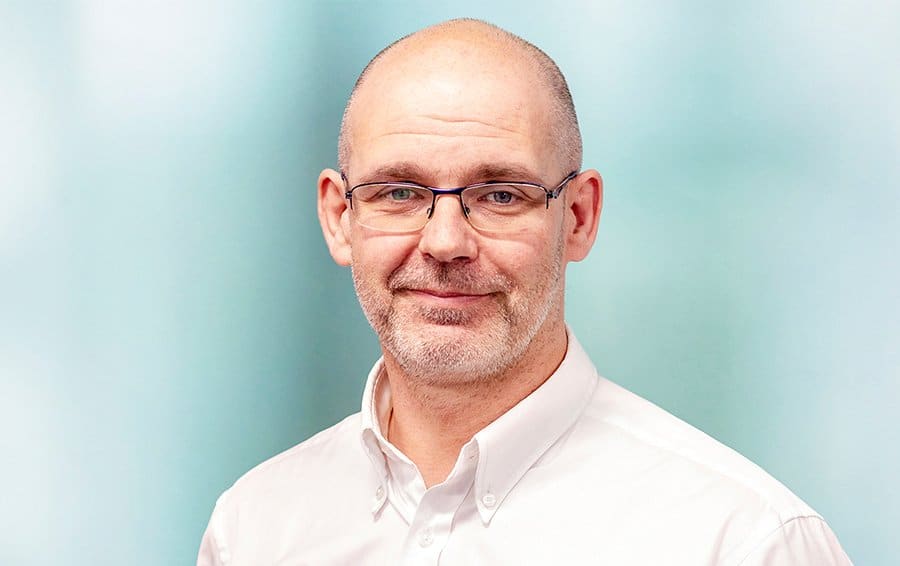Greiner Packaging UK & Ireland has invested over £3,700,000 in a new PET decontamination and extrusion line to enable the use of more recycled materials in its market leading pot and tub range as well as continuing innovation with more sustainable materials.
Recycled flake is cleaned and washed, however still requires further decontamination. Installed at Greiner Packaging’s factory in Dungannon, Northern Ireland, is a new world-class decontamination unit which enables the removal of impurities and hence, creating a food-safe material. This is integrated with a greater material feed system which is directly linked to a new, state of the art extrusion line. This equipment and process arrangement gives complete flexibility with the capacity to utilise recycled input materials, virgin or a combination of both, giving total flexibility to meet customer requirements.
“Investing in these two new machines is the latest step in our continued commitment to innovate, increase capacity and reduce our carbon footprint,” says Greiner Packaging UK & Ireland Chief Executive Officer Philip Woolsey. “Since Greiner Packaging first introduced its K3® cardboard-plastic innovation in 2007, there has been continuous investment at our UK manufacturing facility. But alongside investing to create new packaging solutions, there has been a constant focus on investing in improving our environmental sustainability performance and pursuing our goal to achieve a circular economy. We are working steadily towards the Dungannon plant becoming carbon-neutral by 2025.”
In 2010, Project Cool delivered the water cooling needs at the Dungannon factory, through the introduction of energy consumption reducing wind power. This was immediately followed by the need to remove excess heat from the cooling system, and Project SCool still delivers the heating requirements for Integrated College across the road from the factory.
“From April 2019, we began the transition to meeting energy requirements solely from renewable sources, as of April 2021 we will have reached this milestone. In addition, with the introduction of LED lighting site-wide, we have reduced our energy requirement by over 500,000 kWh per annum,” says Philip.
Beyond rPET – investing to increase recycled material across all materials
“Installing the new equipment allows Greiner Packaging to integrate the supply chain, and it is planned to soon be able to include at least 30% recycled content in all products,” says Philip. “Rather than buying-in PET sheet and selling off any waste, we can now create recycled PET (r-PET) sheet on-site, and re-use excess material.
“Until now, we have only extruded polypropylene (PP) in Dungannon, but now we can extrude r-PET, and will soon also be trialling the extrusion of recycled polypropylene (r-PP).
“Currently, most of the recycled PET supply available in the UK originates from plastic bottles, a very clean source. The new integrated line enables ‘tray-to-tray recycling’ – meaning that we can process material from a wider variety of sources and utilise a lighter grade of recyclate. This novel process and equipment arrangement will provide greater capability to control and enhance material characteristics to better meet customer’s product specifications.
“While r-PET has become commonplace for chilled products such as salads, PP has remained the main material for dairy products and our aim is to offer increasing r-PP content, even though food-grade PP recyclate is currently in short supply in the UK. Despite this, pilot quantities of r-PP for product trials are already available.”
Greiner Packaging UK & Ireland is one of the founding members of the UK Plastics Pact, whose roadmap shows that the volume of pots, tubs and trays made from r-PET will fall, while chemically recycled polypropylene will increase.
“While a lot of talk in the industry is currently only about r-PET, we are already in a position to favour either r-PET or r-PP, and can produce the majority of our products using either material. Across Europe, we are already making products with r-PP, and this is set to increase and will be introduced to the UK in 2021.”
Using the new in-house r-PET capability, a wide range of 100% r-PET K3® products are now available. Greiner Packaging’s adaptable, popular and successful K3® cardboard-plastic combination, reduces plastic consumption, while creating eye-catching packaging designed to maximise marketing opportunities. Thanks to its reduced plastic content, the K3® packaging solution has an improved CO2 footprint and it can be recycled efficiently, as the cardboard and plastic can be easily separated.
“By reducing the amount of plastic in our K3® cardboard-plastic combination product, cardboard becomes the major component, making K3® except from the upcoming plastic-tax,” says Philip. “This represents another significant step in our journey to helping our customers to add value, while also delivering on our circular economy commitments.”






